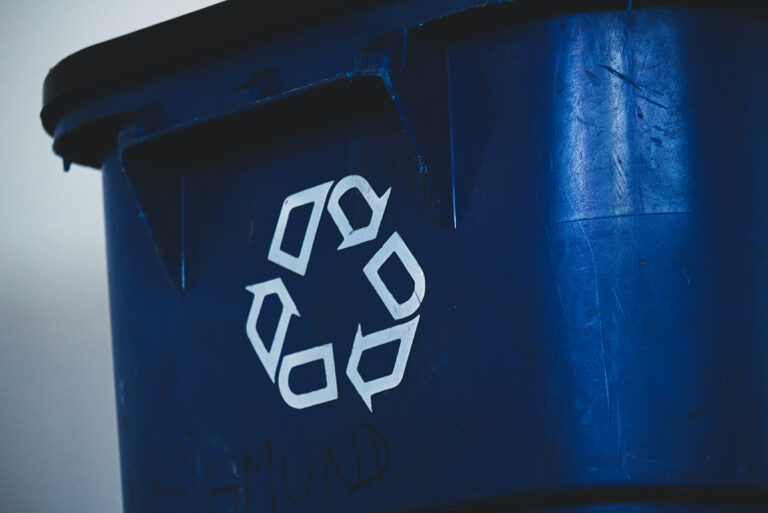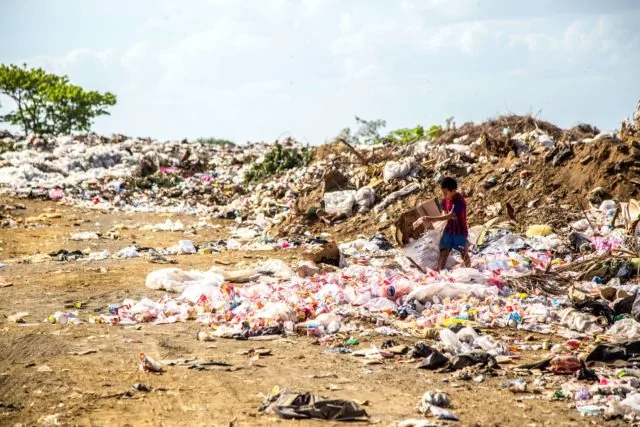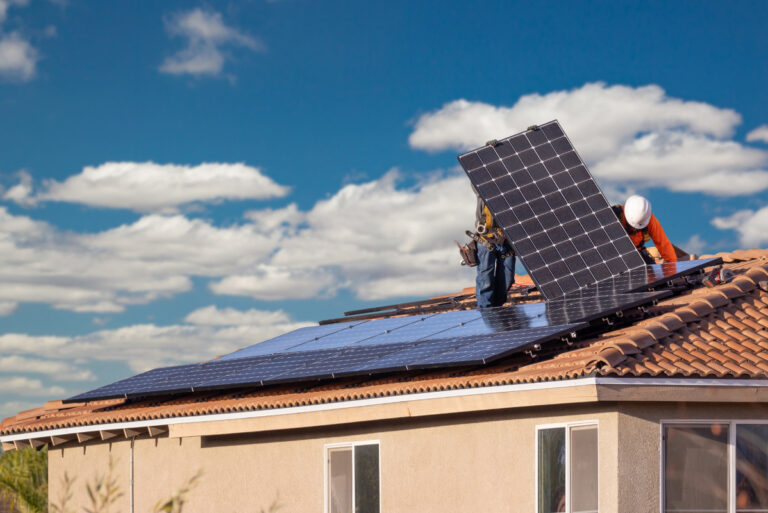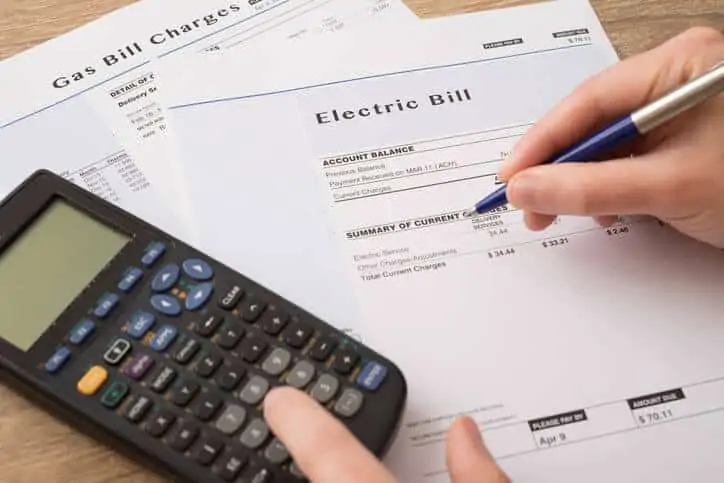Our energy conservation guide will highlight everything you should know about saving and conserving energy. We should do whatever it takes to consume less and increase efficiency. This will help save our planet and better our future.
Energy Conservation Guide: Importance of Saving Energy & the Environment
One of the biggest challenges faced by our planet in the 21st-century is climate change. Unusual heatwaves are a testament to that. Energy conservation is at the center when it comes to fighting climate change and saving the future of the planet.
There are only limited fossil fuels and natural resources to meet our energy needs, and at some point, in the future, these resources will run out.
It is simply unsustainable. We need to think about sustainable decisions today. Not down the road.
If we take a good hard look at some of the problems today, you can notice how they are intertwined. Fossil fuel extraction pushed by the ever-increasing energy consumption demands is increasing carbon emissions.
Simply put, more demand, more fossil fuel extraction, more carbon emission.
Subsequently, we are seeing major health crises and economic slumps in developed and developing countries alike.
According to the latest figures from NASA, the global temperature rise in a year stands at 0.8 °C. These numbers indicate a strong need for energy conservation.
What Is Energy Conservation?
Before learning more about the importance of saving energy, it is important to understand what is energy conservation. The term has somewhat broad applications, but the underlying purpose is the same.
In simple words, energy conservation means reducing energy consumption. Some refer to it as the fifth fuel after oil, gas, coal, and nuclear energy production. It essentially helps save the two primary energy resources – oil and gas – the demand for which has risen and continues to rise dramatically.
Under the umbrella term of energy consumption comes energy efficiency, renewable energy, and wastage reduction. It encompasses various types of energy conservation from the global level to a small level such as gasoline in your car.
Are energy conservation and energy efficiency the same thing?
In some cases, people confuse conservation for efficiency when it comes to energy. Being energy efficient simply means using technology to get the same function with less energy.
Obviously, this directly contributes to conservation.
Why is Energy Conservation Important?
It goes without saying that time is of the essence when it comes to taking control of energy production and consumption patterns. As the population of the world increases (at least for the next 5 to 8 decades), so will the energy needs.
However, as mentioned before, the resources to produce this required energy are gradually depleting. On top of that, fossil fuel extraction and energy consumption, in general, is taking a toll on the climate and health.
Carbon Emissions
The energy produced through traditional methods is a major contributor to greenhouse gas emissions. According to the Environmental Protection Agency (EPA), transportation and electricity production were the biggest producers of greenhouse gases in the US in 2017. The transportation sector is responsible for 28.9% of total carbon emission, whereas electricity production is not far standing at 27.5%.
In addition to the above two, industries across the US and also globally are causing quite a damage to the environment. While the discussion has been going on for some decades now, it has only gained ground recently given the terrible effects global warming is having. Here are a few tips as to you should care for the environment.
The more energy we produce and consume, the more at risk the planet would be. At a high-level UN General Assembly meeting earlier this year, experts said that we only have 11 years left to prevent irreversible damage to the planet.
What does this mean? We all have to act NOW!
Conserving energy is at the heart of the solution. If we reduce use and subsequently limit production, we can successfully limit harmful carbon emissions and stop climate change in its path, at least for now. Going all-electric at home, for instance, can not only positively affect your monthly bills but also result in a significant reduction of your carbon footprint.
Did you know you can save money on energy without installing anything? You can use Arcadia Power to move to clean energy. You’ll save on your electric bill for completely free.
Limited Resources
Former French President Francois Hollande said in one of his speeches about Climate Change, “The time is past when humankind thought it could selfishly draw on resources. We now know the world is not a commodity.”
He was right, isn’t he?
The number of years of fossil fuels left is hotly debated, but almost everyone agrees that they will end at some point. While we are gradually moving towards sustainable solutions to meet our energy needs, we must conserve the resources we have.
At the current rate of global consumption which is around 11 billion tonnes of oil a year, the oil reserves should last for just another 53 years. That is a very short time which is why many oil-rich nations are moving away from their dependency on oil. This is because they realize that if their dependencies continue, their economies will die when the vast reserves finally end.
A great example is Norway. It has vast oil reserves in the North Sea but has been a staunch supporter of renewable energy.
The government gives subsidies for electric cars which is why they currently have the highest market share for plug-in electric cars anywhere in the world.
Pollution
In addition to CO2 emissions, we are producing a lot more pollution that is harming our health. Environmental pollution, as well as water pollution, eventually becomes a health risk.
It is no surprise that every now and then we see outbreaks of dangerous viruses and diseases, especially in underdeveloped countries. The culprit behind that is waste and pollution, much of which comes from burning fossil fuels for energy and transportation.
As the air is getting polluted, it pollutes the rain coming down. As a result, the soil gets polluted with harmful substances and has a direct impact on crops. Even nuclear energy, which is considered clean, is not free from blame.
The nuclear waste is not always disposed of carefully and ends up infiltrating the environment. The water from the reactors that is cleansed and recycled into the rivers is warmer by 25 degrees which is a threat to marine life.
An Increasing Number of Vehicles
Transportation is a big producer of CO2 around the world. This sector roughly amounts to a whopping 63% of oil consumption globally according to the World Energy Council. This number continues to grow as it is predicted to grow to 88% in the coming years.
Thanks to the rising middle class in developing countries, car ownerships have sky-rocketed in the last few decades. Even though car manufacturers are slowly moving towards energy-efficient and environmentally safe cars, the demand for gasoline cars is still high as they are cheap. This makes it even harder to prevent climate change and conserve energy.
The importance of conserving energy could not be more apparent in the times we live in. Thanks to peak fossil fuel extraction, transportation, and manufacturing, we are running out of resources and polluting the planet at the same time.
What are the Popular Energy Conservation Methods?
It is not just the responsibility of governments to limit energy production and find alternatives to conserve energy. As citizens of the world, the duty falls on everyone to play their part in reducing their use of energy in its various forms and contribute to saving the planet.
Efforts are already in motion on a global level with many governments from developed and developing world taking serious measures to fight climate change, including conserving energy. However, with the threat so imminent more needs to be done.
Now that you understand what and why of energy conservation, it is time to talk about how.
There are various energy conservation methods but here you will find them bundled into a few categories:
-
Renewable Energy
The most obvious solution to conserving energy is to shift to renewable resources. These include wind, solar, water, geothermal, and biomass. These resources are called renewable because there is an abundance of them, and unlike oil and gas, they will not deplete. They are also environment-friendly and do not produce harmful carbon emissions.
According to REN21’s Global Status Report of 2018, renewable resources accounted for 18.2% of global energy production. While promising, this number should rapidly increase if we are to ensure the conservation of elementary energy resources.
Europe, China, and the United States are the biggest investors in this sector, but developing countries in Asia and Africa are also making strides.
If you are a homeowner and want to conserve energy, you may want to invest in renewable sources. The most popular for domestic purposes are solar panels.
They can be pricey, but in the long term, you will not only help save energy but also save money.
On the other hand, you don’t always need a solar panel system to take advantage of solar power, especially when it comes to lighting. For instance, using solar-powered flagpole light is a great way to illuminate the flag without adding cost to your energy bill. Or if you have chickens in your backyard, you might consider installing a small solar chicken coop light, which will help keep hens healthy and safe using the sun’s energy.
If you are a business owner, you might want to invest in some power infrastructure that uses renewable resources like solar energy. Many governments offer subsidies to businesses that implement sustainable energy provisions. You should also evaluate your carbon footprint and minimize that.
-
Energy Efficiency
You will be conserving energy when you use efficient modern technology that gives the same output using less input. The good news is that such technology is not always expensive. For instance, LED bulbs use up to 35% less energy than your regular incandescent bulbs.
When shopping for electronics, always look into the power consumption numbers like wattage, amp, etc. Energy-efficient appliances in your home will use less energy and not run up huge electricity bills.
Did you know that appliances still draw power from outlets even when not in use? They do, and the way to make sure that does not happen is using smart power strips. These are a great investment in your energy-saving mission.
Heating in the winter is costly as it contributes to nearly 25% of your energy bill. However, it can be even more expensive if your home loses heat.
This usually happens because of the windows. What you need are efficient windows that are a double pane. These gas-filled windows can reduce heat loss by 20%.
If you live in a region that sees very frigid winters with storms, you should consider installing storm windows.
-
Shift to Hybrid/Electric Cars
By now you know that your car is probably using a lot of gasoline if it is a gasoline engine car. You can go green and help save energy by switching to an electric car or a hybrid one.
The great thing is that you will save up a lot of money over time. That said, saving money should not be the sole motivator for conserving energy.
-
Changes in Energy Consumption
A small change can go a long way. Remember, part of the problem is unnecessary consumption too, which ultimately raises demand, and the cycle continues.
There are many ways you can cut on your power usage around your home and work. Here are some useful energy conservation examples.
- Shut off those unnecessary lights around the house.
- Clean air filters in the air conditioning systems in your house regularly.
- Do full loads when washing clothes or dishes in washers.
- Air dry clothes instead of using a dryer (it is good for the environment as well),
- Use maximum daylight instead of turning on lights.
- Install those lights with sensors in hallways and stairs.
- Walk or cycle for small distance journey.
- Wear warm clothes inside the house to use less heating.
-
Energy Audit
Aside from the energy conservation examples above, you can hire an energy audit company or expert to audit your house and recommend measures to make it more efficient.
It will help you find out which areas of your house are losing energy and how to improve them. They usually produce a very detailed report with projections about how much you would be conserving and saving by making the recommended changes.
See Related: Best Quotes About Sustainability
-
Weatherization
Weatherize means sealing your house for air leaks. It helps prevent cool air in the summer and heating in the winter from leaking. The most common avenue for air leaks are doors, windows, and vents inside your house. You should check to see that there are no cracks in the walls or gaps in windows or door frames.
For cracks in the walls, caulk can be used. For windows or doors, you may want to use weather strips.
You can do the inspection yourself at the start of winter or summer seasons. The energy audit experts can do this for you too.
If you have an attic in your home, make sure to inspect that as well. Attics are most common for heat escapes as hot air usually travels upwards and escapes through cracks or openings in the attic.
You can seriously bring down your heating bill by weatherizing your home.
Like all these tips mentioned above? Use these other energy conservation methods to reduce consumption and save money along the way.
Conclusion on Energy Conservation
Energy conservation has many benefits both for you and the people around you. Many people adopt these practices to save money. However, the benefits go beyond that. You may be cutting down on your energy bills, but at the same time, you are saving the future of this planet.
We are rummaging through the limited resources we have and in doing so terribly damaging the environment.
By making small changes and using less energy, you reduce the demand and spare resources. You also leave a smaller carbon footprint.
As mentioned, global temperatures are rising fast, and the ice sheet in the Arctic is melting, making sea levels rise. One of our weapons to fight against global warming is by making smart choices that help conserve power.
Related Resources
- Non-Biodegradable vs Biodegradable Resources
- What is Greywater: A Complete Guide & Overview
- How to Choose the Right Recycling Center Near You
Green Coast is a renewable energy and green living community focused on helping others live a better, more sustainable life. We believe that energy and green living has become far too complex, so we created a number of different guides to build a sustainable foundation for our future.

















